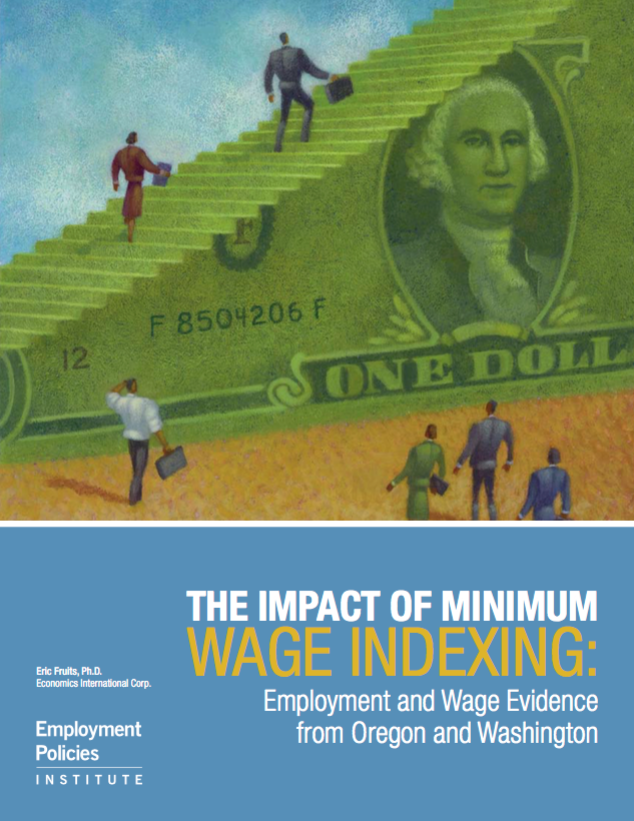Minimum wage increases are a hot-button issue in many states. On the one hand, the minimum wage is often cited as a textbook example of how price floors create surpluses in which too many workers chase too few jobs, especially among those applicants with the fewest skills. On the other hand, proponents of raising the minimum wage suggest that increases are virtually painless. Because minimum wage increases can be politically challenging to implement, many states have introduced minimum wage indexing. With indexing, the minimum wage increases automatically each year based on some measure of inflation.
The goal of this research is to evaluate quantitatively the economic effects of minimum wage indexing, with a focus on Oregon and Washington’s experience. Impacts are quantified by how they affect (1) employment, and (2) hourly wages for hourly workers. The project uses wage data from the annual March Current Population Surveys (CPS) covering the period 2003–2008 for Oregon, Washington, and their neighboring states (California, Idaho, and Nevada).
This information covers the period in which both Oregon and Washington have indexed their minimum wages. The data provide sufficient detail for individuals in Oregon, Washington, and other states that differences in and changes to the wage and employment distribution can be tested statistically.
The model used in this study accounts for the possibility that factors affecting whether an individual is employed also affects the hourly wage earned. Rather than assuming that younger individuals are differentially affected by the minimum wage and minimum wage indexing, this study tests and quantifies minimum wage impacts by age.
Key Findings
- Higher minimum wages in Oregon and Washington are associated with reduced employment
Regression results indicates that Oregon and Washington’s higher minimum wages are associated with a statistically significant reduced probability of being employed. - Younger members of the labor force are more likely to be adversely affected by increases in the minimum wage and minimum wage indexing
Oregon and Washington’s policy of indexing the minimum wage produces annual increases in the minimum wage which, in turn, are likely to increase unemployment, especially among the young. - Higher minimum wages have no statistically significant impact on wages of Oregon and Washington hourly wage earners
Regression results indicate that, controlling for employment impacts, increasing minimum wages have no statistically or economically significant impact on wages. Thus, minimum wage indexing imposes employment costs with no measurable income benefits.
